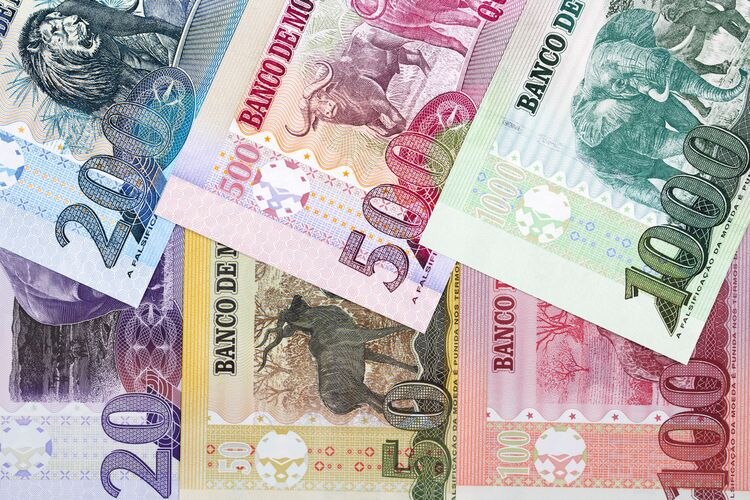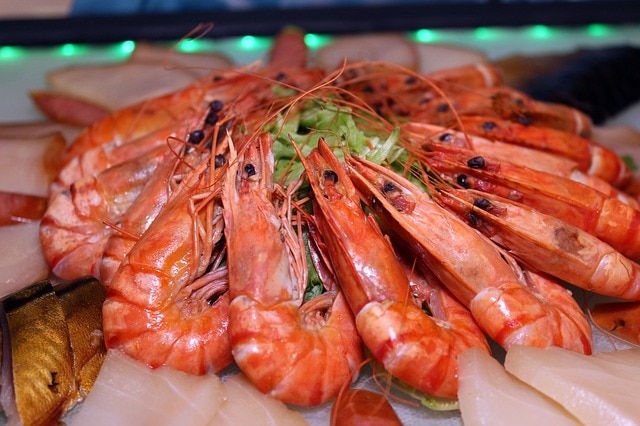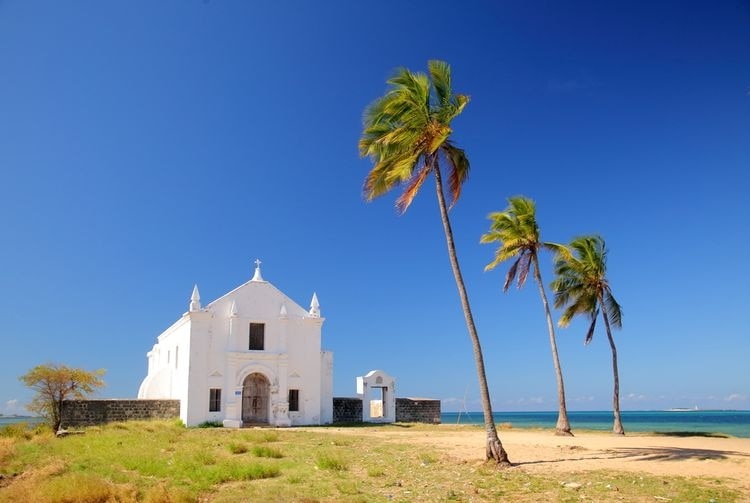Mozambique Travel Tips and Information
Official Name
Republic of Mozambique
Capital
Maputo
Population
Country Code
Approximately 34 million
MZ
Country Code (international calls)
+258
The flight time to Mozambique is approximately ---- hours. Check the climate, currency, religion, manners, other information of Mozambique below. Wishing you pleasant travels to Mozambique.
Located along the southeastern coast of the African continent, Mozambique is a republic bordered by countries such as Tanzania, Zambia, Malawi, Zimbabwe, and South Africa. Although it is a member of the Commonwealth of Nations, it was a former Portuguese colony, so Portuguese is the official language.
Local Climate / Weather
Mozambique has a tropical to subtropical climate, with its weather varying by region and season. The coastal areas, like Maputo and Beira, experience hot and humid conditions throughout most of the year, while the inland areas, particularly in the north, tend to be warmer with more noticeable seasonal shifts. Mozambique's climate is defined by two main seasons: a rainy season from November to April and a dry season from May to October. The rainy season brings heavy rains, especially in the central and northern regions, while the dry season is marked by lower humidity and cooler temperatures, making it an ideal time to visit. For travelers, the best time to visit Mozambique is typically during the dry season, between May and October. This period offers comfortable temperatures, less humidity, and excellent conditions for beach activities, safaris, and exploring national parks. However, visiting during the rainy season can also have its advantages, especially for those interested in lush green landscapes and vibrant local flora. Travelers visiting during the rainy season should be prepared for potential heavy rains and humidity but can enjoy fewer crowds and lower prices. Mozambique hosts several lively events and festivals throughout the year, celebrating the country’s rich cultural heritage. One of the biggest events is the Azgo Festival in Maputo, an annual international music and arts festival held in May, featuring a blend of African and global artists. In November, the Independence Day celebrations are held, with parades, performances, and festivities commemorating Mozambique’s independence. The Tambo International Art Camp, held in different locations across Mozambique, also attracts artists and cultural enthusiasts to celebrate African art and culture through exhibitions and performances. These events give travelers a unique insight into Mozambique’s vibrant culture and make for memorable travel experiences.
Currency & Tipping
Currency
Mozambique’s currency is the Mozambican Metical (MZN), commonly abbreviated as "MT." It includes banknotes in denominations of 20, 50, 100, 200, 500, and 1,000 meticais, while coins come in 1, 2, 5, 10 meticais and 1, 10, 50 centavos. Travelers may also encounter older coins with centavo values, though these are less commonly used in daily transactions. Exchanging currency is best done in major cities like Maputo, where there are established currency exchange services and banks that accept international currencies such as US dollars or euros. ATMs are also widely available in urban areas, allowing travelers to withdraw meticais directly, which can be convenient. It's advisable to carry some cash for smaller purchases in rural areas, as card payments may not be as widely accepted outside of cities.
Tipping
Tipping is customary in Mozambique, especially in the hospitality industry. In restaurants, a tip of around 5-10% of the bill is generally appreciated if service is not already included. Hotel staff, tour guides, and drivers also welcome tips, which can vary depending on the level of service. Small tips are also given to porters or parking attendants. A little generosity goes a long way in Mozambique, as tips are often a valued supplement to regular income.
Useful Travel Information

Voltage & Electrical Outlets
Mozambique uses a 220-240V voltage system with Type C, F, and M outlets, which are common across Europe and much of Africa. Travelers will likely need a plug adapter and possibly a voltage converter if their devices are not compatible with this voltage range. It's always advisable to check device compatibility before traveling.

Internet Connectivity
Internet access in Mozambique varies significantly between urban and rural areas. In cities like Maputo, internet services are readily available in hotels, cafes, and restaurants, although speeds may be slower compared to international standards. Mobile data is widely accessible through local providers, so purchasing a local SIM card upon arrival is a convenient option for those needing regular internet access.
Water for Consumption (Drinking Water)
Tap water in Mozambique is generally not safe for drinking. Travelers are advised to drink bottled or filtered water and to avoid ice in drinks unless they're certain it’s made from purified water. Bottled water is readily available in most urban areas, and using it for drinking and brushing teeth is recommended to avoid potential waterborne illnesses.
Culture, Religion & Social Etiquette
Culture
Mozambique’s culture is vibrant and deeply rooted in African traditions, with influences from Portuguese colonization, which lasted until 1975. Traditional music and dance, including the popular "marrabenta" music style, are central to Mozambican culture, and crafts like wood carving, pottery, and beadwork are widely practiced. Travelers will appreciate the warmth and friendliness of locals, as family and community values are highly respected.
Religion
Religion in Mozambique is diverse, with a mix of Christianity, Islam, and indigenous beliefs. About half of the population is Christian, while a significant portion practices Islam, especially in the northern regions. Traditional African beliefs are also respected and often blended with other faiths. This cultural diversity creates an environment of religious tolerance and coexistence that travelers will find welcoming.
Social Etiquette
Mozambique’s manners emphasize politeness, respect for elders, and friendly greetings. It’s customary to greet others with a handshake and inquire about their well-being before discussing any business. Travelers will likely find this politeness and focus on social connections, where respect and warm greetings are also important. Dressing modestly and following local etiquette, especially in rural or conservative areas, is appreciated by Mozambicans and helps foster positive interactions.
Food Culture
Mozambique’s food culture is a flavorful blend of African, Portuguese, and Arab influences, creating a unique and diverse culinary experience for travelers. Known for its fresh seafood, Mozambique’s signature dishes often include prawns, crab, and fish, typically seasoned with spicy peri-peri sauce or coconut milk, bringing out bold and tropical flavors. Street food is vibrant and widely available, offering travelers a chance to taste dishes like prego rolls (steak sandwiches), grilled corn, and bifanas (pork sandwiches) at affordable prices. In cities like Maputo, popular restaurants such as Mercado do Peixe (Fish Market) allow visitors to choose fresh seafood and have it cooked to their taste, while venues like Zambi and MarNaBrassa offer fine dining with a local twist. For travelers, Mozambique’s food scene offers a delightful mix of familiar spices and exciting new flavors that will make their journey even more memorable.
Major Tourist Attractions & UNESCO World Heritage Sites
Major Tourist Attractions
Mozambique is home to some breathtaking tourist destinations that offer unique experiences for travelers. The Bazaruto Archipelago, known for its pristine beaches and crystal-clear waters, is a paradise for snorkeling, diving, and marine life viewing, especially the rare dugong. Vilanculos, the gateway to the Bazaruto Islands, is ideal for beach lovers and adventurers looking to enjoy water sports or boat trips to the islands. The vibrant capital, Maputo, offers a blend of African and European architecture, bustling markets, and a rich culinary scene, making it perfect for those interested in cultural exploration. Meanwhile, Gorongosa National Park, a vast and biodiverse reserve, offers safari experiences that include sightings of lions, elephants, and over 500 bird species, ideal for nature enthusiasts and families looking for a memorable wildlife adventure.
UNESCO World Heritage Sites
Mozambique is also proud to host several UNESCO World Heritage Sites that reflect its deep history and cultural heritage. Ilha de Moçambique, or Mozambique Island, is a significant heritage site known for its historic architecture, which showcases Portuguese, Arab, and African influences. Visitors can explore the 16th-century Fort São Sebastião, the Chapel of Nossa Senhora de Baluarte, and local museums that provide insight into Mozambique’s rich past. Another notable heritage site is the Lake Niassa Reserve, which is recognized for its incredible biodiversity, including many unique fish species. Travelers interested in history and natural beauty will find these heritage sites offer a window into Mozambique’s past and its commitment to preserving its natural wonders.
Travel FAQs
What is the safety situation in Mozambique like? What should travelers be careful of?
Mozambique presents certain safety challenges, including risks of violent crime such as armed robbery, break-ins, and car-jackings, particularly in urban areas. Travelers should exercise increased caution, especially in the northern province of Cabo Delgado, where terrorist activities have been reported.
Is English spoken in Mozambique?
The official language is Portuguese, and English is not widely spoken except in major hotels and government agencies, so we recommend hiring an English-speaking tour guide.
What is the most popular airport to fly to Mozambique?
Maputo International Airport. There are several other airports that serve domestic flights.
What is the best season to visit Mozambique?
The best season is the dry season from April to September.
How much should I tip in restaurants in Mozambique?
The going rate is around 5 to 10 meticals.




